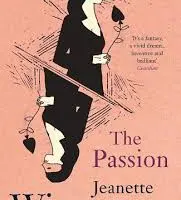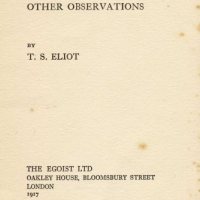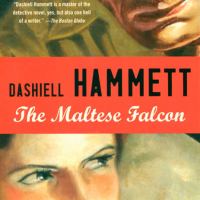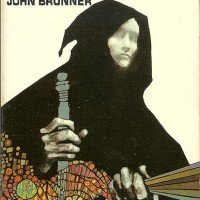When I was reading Joyce’s Dubliners, I came across the following quote:
Mr Harford sometimes formed one of a little detachment which left the city shortly after noon on Sunday with the purpose of arriving as soon as possible at some public-house on the outskirts of the city where its members duly qualified themselves as bona-fide travellers.
It’s quite an obscure reference. What does bona-fide traveller mean here? Why was a detachment leaving the city to go for a drink? Why not just get one at a public-house local to them?
Oddly enough in this case I knew the answer, because my grandfather once told me it. Back in the early 20th Century there was a temperance law in the UK (which for a while of course included Ireland). The law provided that you couldn’t buy alcohol on a Sunday, unless that is you were a bona-fide traveller. The point was that ordinary folk were restrained from drinking on the Sabbath, but those who were travelling (likely on business) and needed to refresh themselves weren’t barred from doing so.
My grandfather knew of the law from the one of Scottish islands where he had family. There was a minimum distance you had to travel to qualify as a bona-fide traveller, so every Sunday each half of the island got up and went en-masse to the other half, swapping sides, so as to ensure that they all passed the test and could legally buy a drink.
There’s something oddly wonderful about that sort of absurdity. Everyone dutifully complying with the letter of the law, and everyone utterly flouting it at the same time. The line between farce and reality can sometimes be very thin.













Thanks for sharing this. Very few people know of quirky things like that from the past. Which isle of Scotland?
I don’t know unfortunately. Quite likely several. We had family links to Argyll and to Bute, and he’d been to the Orkneys as we have some far-flung family there, but which of those if any it was I don’t know. The law probably at one time applied to all of them. Good chance it was Bute though.
There is something fascinating in the ordinary stuff that old people remember. I recall him telling me how in Glasgow in the 1930s he saw men waiting at street corners, unemployed and with nowhere to go and nothing to do. Somehow that small recollection brings the great depression home to me more than any of the books I’ve read on it.
You might find this article about the Wee Frees of some interest.
Fascinating anecdote. This is just how human nature is. Go against it and people find a way to get around and do what they want in the end.
Oddly, it reminds me of my daughter the other day. We established a new rule saying that the one finishing a bottle of milk should go and pick another one. She just shrugged and said “Well, I’ll make sure to leave a bit of milk in the bottle”.
Sounds similar to that bizarre law which banned Sinn Fein members from speaking directly on broadcast media (http://news.bbc.co.uk/1/hi/4409447.stm).
Thanks for that Jim. The Wee Frees. Too liberal of course for the Wee Wee Frees.
Emma, that’s quite funny. Not sure she should have told you her plan though. The same thing comes up quite often in property tax law. At one point in the UK there was a window tax – property value for taxation was calculated by reference to the number of windows. People bricked up their windows.
In Italy there was a rule that tax didn’t apply until the property was finished. Result: Many properties were built with an apparently-still under construction top floor, so the tax didn’t apply.
Another Italian one: Properties were at one point taxed on their apparent value from an external inspection. That’s why Italy has so many crumbling palazzi in part – owners allowed them to look decayed so as to reduce their tax bill.
Steve, I remember that one. It simultaneously allowed them to present themselves as a silenced minority while also meaning that their statements were read out often by trained actors instead of whatever spokesmen they happened to have (who often didn’t speak as well or as clearly as the actors dubbing them). A bizarre policy.
She shouldn’t have said it. That’s where you see she’s only 12. Still candid.
And you’re right about taxes and the examples you give. I’m sure I could find some in France too.
A nice little article.
Anything for a pint…
Where there’s a will there’s a way, eh Max? I’ve done some research to see if this was the case in Australia, but can’t find anything. My father has told me that he and his mates used to go on Sundays to a hotel in a town called Tarago, perhaps an hour’s drive from the country town, Braidwood, where he was working at the time because the pub was open. I’m not sure why that pub was open because liquor laws were fairly tight. I’m wondering whether it may be because it was on some travel route!
As you both say, whatever it takes. That was the problem with prohibition too of course in the US. I suspect your Braidwood example was something similar WG, Austtralia may never have been dry but I’d imagine there was at least some kind of temperance movement at some point – even if restrictions only applied on Sundays say.
Fascinating stuff isn’t it? How we used to live, and how too laws can drive unexpected outcomes in terms of behaviour.
Yes, there was a temperance movement here with controls on closing times etc. I do suspect there may have been something like this here but my light digging didn’t retrieve it. It sure is fascinating.